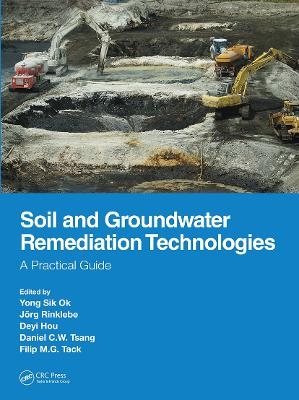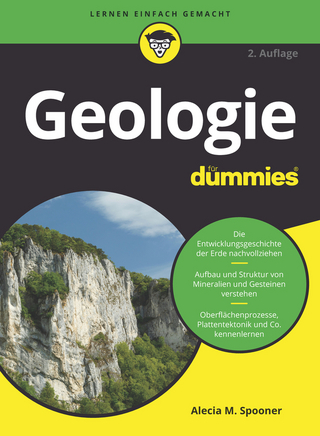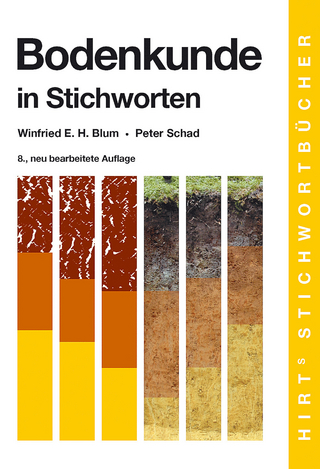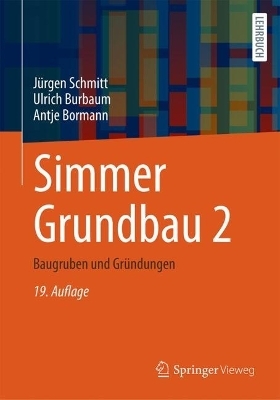
Soil and Groundwater Remediation Technologies
CRC Press (Verlag)
978-0-367-33740-7 (ISBN)
This book offers various soil and water treatment technologies due to increasing global soil and water pollution. In many countries, the management of contaminated land has matured, and it is developing in many others. Topics covered include chemical and ecological risk assessment of contaminated sites; phytomanagement of contaminants; arsenic removal; selection and technology diffusion; technologies and socio-environmental management; post-remediation long-term management; soil and groundwater laws and regulations; and trace element regulation limits in soil. Future prospects of soil and groundwater remediation are critically discussed in this book. Hence, readers will learn to understand the future prospects of soil and groundwater contaminants and remediation measures.
Key Features:
Discusses conventional and novel aspects of soil and groundwater remediation technologies
Includes new monitoring/sensing technologies for soil and groundwater pollution
Features a case study of remediation of contaminated sites in the old, industrial, Ruhr area in Germany
Highlights soil washing, soil flushing, and stabilization/solidification
Presents information on emerging contaminants that exhibit new challenges
This book is designed for undergraduate and graduate courses and can be used as a handbook for researchers, policy makers, and local governmental institutes. Soil and Groundwater Remediation Technologies: A Practical Guide is written by a team of leading global experts in the field.
Yong Sik Ok, PhD, is a Full Professor at and Global Research Director of Korea University in Seoul, Korea. He currently serves as Director of the Sustainable Waste Management Program for the Association of Pacific Rim Universities (APRU). Jörg Rinklebe, PhD, is Professor for Soil and Groundwater Management at the University of Wuppertal, Germany. Recently, Professor Rinklebe was elected as Vice President of the International Society of Trace Element Biogeochemistry (ISTEB). Deyi Hou, PhD, is an Associate Professor at the School of Environment of Tsinghua University. Daniel C.W. Tsang, PhD, is an Associate Professor in the Department of Civil and Environmental Engineering at the Hong Kong Polytechnic University and Honorary Associate Professor at the University of Queensland. Filip M.G. Tack, PhD, is Professor in Biogeochemistry of Trace Elements at the Department of Green Chemistry and Technology at Ghent University. He is Head of the Laboratory of Analytical Chemistry and Applied Ecochemistry of Ghent University.
1. Overview of Soil and Groundwater Remediation. 2. Sustainable Remediation and Socio-Environmental Management at Contaminated Sites. 3. Basic Principles of Risk Assessment of Contaminated Sites. 4. International Trace Element Regulation Limits in Soils. 5. Emerging Contaminants in Soil and Groundwater. 6. Arsenic Removal from Water Using Biochar-Based Sorbents: Production, Characterization, and Sequestration Mechanisms. 7. Potential Value of Biowastes in the Remediation of Toxic Metal(oid)-Contaminated Soils. 8. Microbiological Interfacial Behaviors in the Removal of Polycyclic Hydrocarbons from Soil and Water. 9. Remediation of Soil and Groundwater Contaminated with Per- and Poly-Fluoroalkyl Substances (PFASs). 10. Phytomanagement of Pollutantas in Soil and Groundwater. 11. Layered Double Hydroxides for Soil and Groundwater Remediation. 12. Neuroremediation: The Next Generation of In Situ Groundwater Remediation Technologies. 13. Reclamation of Salt-Affected Soils. 14. Integrated Soil Remediation by Chemical-Enhanced Extraction and Biochar Immobilization for Potentially Toxic Elements. 15. Green and Sustainable Stabilization/Solidification. 16. Treatment Strategies for Wastewater from Hydraulic Fracturing. 17. Societal Support for Remedication Technologies. 18. Post-Remediation Site Management. 19. Electrical Resistivity Tomography Monitoring and Modeling of Preferential Flow in Unsaturated Soils. 20. Determination of the Unsaturated Hydraulic Conductivity of Soil: Theoretical and In Situ Approaches. 21. New Technologies for Monitoring Contaminated Soil and Groundwater. 22. Selected Examples of Remediation and Reactivation of Old Sites in the Ruhr Region.
| Erscheinungsdatum | 15.04.2020 |
|---|---|
| Zusatzinfo | 51 Tables, black and white; 30 Illustrations, color; 70 Illustrations, black and white |
| Verlagsort | London |
| Sprache | englisch |
| Maße | 216 x 280 mm |
| Gewicht | 1038 g |
| Themenwelt | Naturwissenschaften ► Geowissenschaften ► Geologie |
| Technik ► Umwelttechnik / Biotechnologie | |
| Weitere Fachgebiete ► Land- / Forstwirtschaft / Fischerei | |
| ISBN-10 | 0-367-33740-1 / 0367337401 |
| ISBN-13 | 978-0-367-33740-7 / 9780367337407 |
| Zustand | Neuware |
| Informationen gemäß Produktsicherheitsverordnung (GPSR) | |
| Haben Sie eine Frage zum Produkt? |
aus dem Bereich


